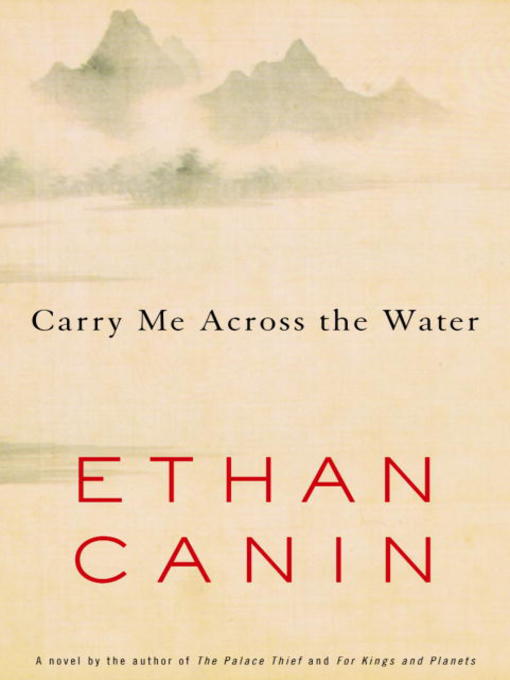
Carry Me Across the Water
A Novel
- اطلاعات
- نقد و بررسی
- دیدگاه کاربران
نقد و بررسی

Starred review from April 30, 2001
August Kleinman, the protagonist of Canin's (For Kings and Planets) latest novel, is 78 years old, rich and wise from a life filled with accomplishments and heartache. Yet as this spare, beautifully realized story opens, he is marveling at the fierce force he discovered in himself one afternoon when he was 18. That day, on his way to watch a friend from his Orthodox Jewish neighborhood in Queens practice football at Fordham University, Kleinman slipped into the locker room and impulsively donned a uniform. He can still feel the way he soared through the air and the jolt of the tackle he landed before he was caught. Looking back, Kleinman can clearly see that it has been the sudden flare of this instinctive intelligence and fight, this drive to persist and assert his existence, that has shaped his life, bringing both abundance and loss. Canin deftly laces together the defining stories of Kleinman's life—from fleeing Nazi Germany as a child with his mother to fighting the Japanese in World War II, building his fortune, enduring the death of his beloved wife and then his difficult relationship with one grown son. Each story contributes another instance of the fighting spirit and impulse to soar that so characterizes Kleinman. However, what is finally galvanizing and moving about Kleinman's life is not his individuality but his complexity. He is capable of being touched, and he yearns to protect and nurture what he finds good. This work has a resonance and precision that can come only when native storytelling ability and craftsmanship search out the deepest truths. Canin deserves a wide readership because he shows that truth—even the truth that comes with age and experience—is not boring.

May 1, 2001
Living alone in a Boston apartment after his wife's death, 78-year-old millionaire beer magnate August Kleinman reviews the defining moments of his life: escape from Nazi Germany as a child, marriage to an Italian Catholic, and the reckless decision to start his own business. But mostly his thoughts turn to World War II and a tragic encounter he had with a young Japanese soldier. For the past 50 years, Kleinman has kept the soldier's letters and drawings and decides to return the keepsakes to the surviving family members in Japan personally. More of a character study than a history lesson, Canin's latest novel (after For Kings and Planets) mentions major postwar events only in passing, instead focusing on family relationships and the simple satisfactions of domesticity. In deference to the values of the World War II generation, the prose style is self-consciously old-fashioned, without a trace of irony or narrative duplicity. This is a well-crafted and frequently affecting novel that only misses the mark in its familiarity. We have heard this story countless times before. Still, Canin's many fans will not be disappointed. Recommended for most fiction collections. [Previewed in Prepub Alert, LJ 1/01.] Edward B. St. John, Loyola Law Sch. Lib., Los Angeles
Copyright 2001 Library Journal, LLC Used with permission.

March 1, 2001
In Canin's fourth novel, he tells the story of 78-year-old German immigrant August Kleinman. Having recently lost his beloved wife and sensing that the end is near, August flashes back to key moments in his past, struggling to see the patterns that have shaped his life. He escaped Nazi Germany when he was just a boy, and his mother's courage and counsel ("Take the advice of no one") always stayed with him. He fought in World War II, married his high-school sweetheart, had three children, and made a fortune by starting his own brewery. August misses his wife terribly and frets about what to do with his money, but the key moment he returns to again and again is a frightening confrontation he had with a young Japanese soldier in a cave. He ultimately decides to go to Japan, where he intends to make reparations to the family of the young soldier. Canin struggles mightily here to reach for the resonance of fable, but his story remains strangely flat, plagued by problems with pacing and an awkward flashback structure. There are some beautiful passages here, most notably in the wry exchanges between August and his daughter-in-law. But it's baffling and somewhat disheartening to see such an accomplished short-story writer insist on struggling with the longer form. Still, Canin has been coasting on the acclaim and popularity of his first book, the short-story collection "Emperor of the Air" (1988), for a long time now, and his fans keep coming back for more. There's no doubt they will be asking for his latest book. (Reprinted with permission of Booklist, copyright 2001, American Library Association.)




دیدگاه کاربران